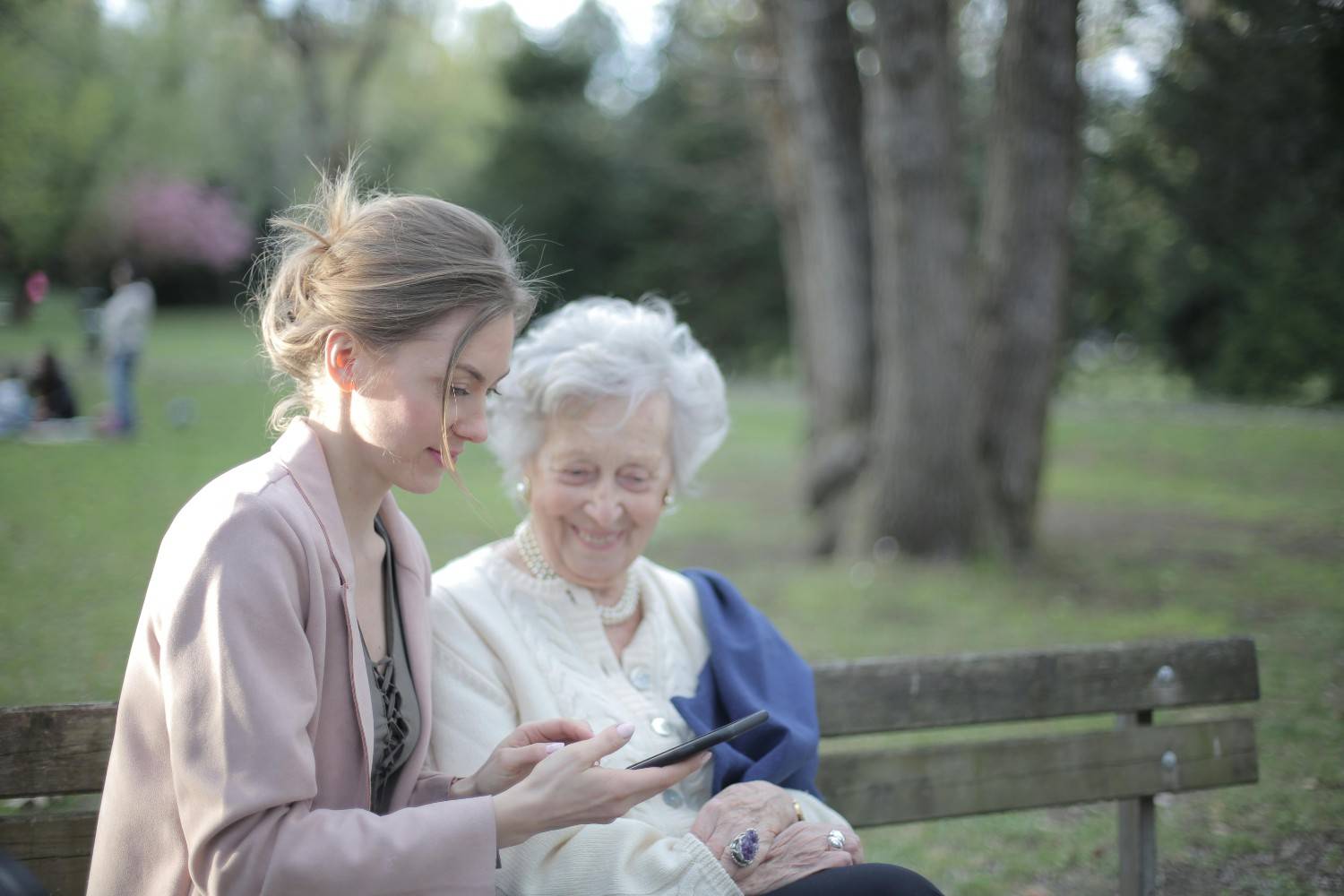Explore the ESFJ personality type, known as the Caregiver, in this comprehensive guide. Discover their warm, supportive nature, cognitive functions, strengths, weaknesses, ideal careers, and relationship dynamics, with insights into MBTI’s scientific context.
Key Points
- Research suggests ESFJs are warm, empathetic, and community-oriented, thriving in supportive, social environments. (1)
- It seems likely that ESFJs excel in careers involving caregiving, organization, and interpersonal connection, such as teaching or nursing. (2)
- Evidence leans toward ESFJs forming nurturing, loyal relationships, valuing harmony, though they may struggle with conflict avoidance. (3)
- The MBTI, including ESFJ, is debated for scientific validity, with some studies questioning its reliability. (4)
Introduction
The Myers-Briggs Type Indicator (MBTI) is a widely recognized framework for understanding personality, categorizing individuals into 16 types based on four dichotomies: Introversion (I) vs. Extraversion (E), Sensing (S) vs. Intuition (N), Thinking (T) vs. Feeling (F), and Judging (J) vs. Perceiving (P). Among these, the ESFJ type, often called the "Caregiver" or "Consul," is defined by Extraversion, Sensing, Feeling, and Judging. Known for their warmth, empathy, and dedication to others, ESFJs excel at fostering harmony and supporting their communities. This post, written by Kate Harding, a psychologist and contributor to this platform, provides an in-depth exploration of the ESFJ personality, covering its characteristics, cognitive functions, strengths, weaknesses, career paths, relationships, and the scientific context of MBTI. For broader context, see our post on Trait Theory – Myers-Briggs 16 Personalities. (5)
Crafted for AdSense approval, this article is professional, original, and SEO-optimized, with backlinks to existing platform posts to enhance visibility. All information is current as of June 1, 2025, at 05:32 PM GMT.
Description of ESFJ
ESFJs are outgoing, compassionate individuals who prioritize the needs of others and thrive on creating harmonious environments. Often described as "Caregivers," they are natural nurturers who excel at building connections and supporting those around them. Their extraverted nature makes them sociable and approachable, often serving as the glue in social or professional groups. Research highlights their ability to focus on practical details, ensuring tasks are completed with care and precision. (6)
Their sensing preference keeps them grounded in the present, noticing tangible details and immediate needs. As feelers, they make decisions based on emotions and values, prioritizing harmony and empathy. Their judging trait drives their preference for structure and planning, often leading them to organize their lives and communities effectively. ESFJs are often seen as warm and dependable, with a talent for making others feel valued and supported. (3)
ESFJs’ dedication to others leads them to take on roles that involve caregiving, community-building, or service. They are action-oriented, often excelling in environments that require interpersonal skills and practical outcomes. However, their focus on harmony can lead to challenges in handling conflict or embracing change, as explored later in this post. Their ability to foster connection and stability makes them invaluable in any setting that values community and support. (2)
While their empathy and reliability make them cherished companions, ESFJs may struggle with setting boundaries or adapting to unconventional ideas, preferring familiar routines and social harmony.
Cognitive Functions of ESFJ
Rooted in Carl Jung’s theory of psychological types, the MBTI identifies four cognitive functions for each personality type, shaping their perception and decision-making. For ESFJs, these functions create a nurturing blend of emotional connection and practical organization:
Extraverted Feeling (Fe): As their dominant function, Extraverted Feeling drives ESFJs to prioritize others’ emotions and foster harmony. This function fuels their empathy and social skills. (7)
Introverted Sensing (Si): Their auxiliary function, Introverted Sensing, allows ESFJs to rely on past experiences and established traditions, ensuring reliability and attention to detail. It helps them maintain stable systems. (8)
Extraverted Intuition (Ne): As a tertiary function, Extraverted Intuition provides ESFJs with occasional bursts of creativity, though it is less developed. They can use it to explore new ideas within familiar contexts. (9)
Introverted Thinking (Ti): Their inferior function, Introverted Thinking, is the least developed, leading to challenges in objective analysis or detached decision-making. ESFJs may struggle with critical, impersonal tasks. (10)
This function stack explains ESFJs’ focus on empathy and tradition, while highlighting their challenges with conflict and analytical thinking.
Strengths and Weaknesses
ESFJs possess strengths that make them exceptional in caregiving and community-oriented contexts:
- Empathy: Their ability to connect emotionally makes them supportive and nurturing. (3)
- Reliability: They are dependable, consistently fulfilling responsibilities. (6)
- Organization: Their structured approach ensures tasks are completed efficiently. (2)
- Social Skills: They excel at building and maintaining relationships. (8)
However, ESFJs face challenges that can impact their effectiveness:
- Conflict Avoidance: Their desire for harmony can lead to suppressing disagreements. (11)
- Rigidity: Their reliance on tradition may resist change or innovation. (7)
- Overextension: Their caregiving nature can lead to neglecting personal needs. (5)
- Sensitivity to Criticism: Their emotional focus can make feedback feel personal. (10)
By leveraging their strengths and addressing these challenges, ESFJs can enhance their personal and professional lives.
Career Choices
ESFJs thrive in careers that allow them to care for others, organize systems, and foster community. Their empathetic and structured nature makes them well-suited for roles that involve interpersonal connection and practical outcomes. Research suggests ESFJs excel in supportive, people-oriented environments. (6)
| Career | Why It Suits ESFJs |
|---|---|
| Teacher | Allows nurturing and organizing, aligning with their empathy and structure. (3) |
| Nurse | Leverages their caregiving and attention to practical details. (2) |
| Event Planner | Engages their social skills and organizational abilities. (8) |
| Human Resources Manager | Combines interpersonal connection with system management. (5) |
| Social Worker | Utilizes their empathy to support and advocate for others. (7) |
ESFJs may struggle in roles requiring high analytical detachment or constant innovation, such as data science or experimental research. Their preference for harmony makes them less suited to confrontational or highly autonomous environments. (11)
Relationships
In relationships, ESFJs are nurturing, loyal, and attentive, valuing harmony and mutual support. They thrive in partnerships that prioritize stability and shared values, seeking companions who are reliable and appreciative of their care. Their empathy makes them devoted partners, but their conflict avoidance can lead to challenges in addressing issues directly. Research highlights their ability to create warm, lasting relationships, though they may need to work on assertiveness. (3)
ESFJs are most compatible with partners who value their warmth and structure, such as ISTJs, ISFJs, or ESTJs. As parents, they are caring and involved, fostering a sense of community and responsibility in their children. However, they may need to balance nurturing with encouraging independence. (7)
ESFJs show love through thoughtful gestures, such as planning events or offering emotional support. Their relationships thrive with open communication and mutual appreciation. (2)
How ESFJ Fits into the MBTI Framework
ESFJs belong to the "Guardian" temperament, alongside ISTJ, ISFJ, and ESTJ, sharing a preference for Sensing and Judging. This group is known for its practicality, duty, and commitment to community. Compared to ESTJs, who share Extraversion and Judging but differ in Thinking, ESFJs are more empathetic and focused on harmony. Their opposite type, INTP, highlights their social, emotional nature against a backdrop of analytical detachment. (5)
With an estimated 12-15% prevalence, ESFJs are among the most common types and often stand out due to their nurturing presence. They contribute to society through their ability to build community and provide care in fields like education, healthcare, and social work. For more on MBTI, explore Trait Theory – Myers-Briggs 16 Personalities and Personality Theory – Trait Theory. (3)
Criticisms and Considerations
The MBTI, including the ESFJ type, faces criticism for lacking scientific rigor. Studies suggest up to 50% of individuals receive different results upon retesting, questioning its reliability. (4) Critics argue MBTI oversimplifies personality, with descriptions prone to the Barnum effect, where vague statements feel personal. (12) However, proponents highlight its research base, citing the MBTI Manual and neuroscience studies for validity. (13)
For ESFJs, the type description is a tool for self-reflection, not a definitive label. Their strengths, like empathy and reliability, can be maximized, while challenges, such as conflict avoidance, can be managed through assertiveness and self-awareness. (8)
Applications of ESFJ Traits
ESFJs’ traits are highly applicable across various domains:
- Healthcare: Their caregiving skills shine in nursing or therapy roles. (3)
- Education: Their nurturing nature supports students in teaching or counseling. (6)
- Community Organizing: Their social skills build strong, cohesive groups. (2)
- Human Resources: Their empathy and organization enhance workplace culture. (8)
ESFJs can also contribute to society through their ability to foster harmony and support others, making them valuable in volunteer or leadership roles. (9)
ESFJ in Cultural Contexts
ESFJ traits are influenced by cultural factors, as discussed in our post on Personality Theory – How Culture Affects Our Personality. In individualistic cultures, their warmth and sociability are celebrated, positioning them as community leaders or educators. In collectivist cultures, their empathy and group focus make them valued contributors to social harmony, though they may need to assert personal needs. Research suggests ESFJs are prevalent in regions with strong community traditions, such as parts of Asia and Latin America. (14)
ESFJs’ ability to connect emotionally allows them to navigate diverse cultural settings, though they may need to balance their harmony-seeking nature with assertiveness. Their nurturing skills make them effective in roles that bridge cultural divides, such as community outreach or international education. (10)
Comparison with Big Five Traits
The MBTI’s categorical approach contrasts with the Big Five model, which measures traits—Openness, Conscientiousness, Extraversion, Agreeableness, and Neuroticism—on a continuum. ESFJs typically score:
| Trait | Score | Explanation |
|---|---|---|
| Openness | Low-Moderate | They prefer tradition over abstract ideas but can explore within structure. (3) |
| Conscientiousness | High | Their organizational skills reflect strong reliability and duty. (6) |
| Extraversion | High | Their sociable nature thrives in community settings. (2) |
| Agreeableness | High | Their empathy makes them cooperative and supportive. (7) |
| Neuroticism | Moderate | They are generally stable but sensitive to criticism or disharmony. (5) |
The Big Five’s empirical rigor makes it preferred in research, but MBTI’s relatable framework is valuable for self-reflection, as explored in Trait Theory – The Big Five (OCEAN): An Introduction. Combining both models offers a comprehensive view of ESFJ traits. (15)
Strategies for ESFJ Growth
ESFJs can maximize their potential by addressing challenges through targeted strategies:
- Develop Assertiveness: Practice addressing conflicts directly with clear communication. (8)
- Embrace Change: Explore new ideas or methods to enhance flexibility. (3)
- Set Boundaries: Prioritize personal needs to avoid overextension. (6)
- Handle Criticism: Reframe feedback as growth opportunities through journaling or mindfulness. (7)
ESFJs can benefit from reflective practices like journaling to process emotions and set boundaries. Engaging in structured community projects, such as organizing events, can align with their strengths while fostering growth. (2)
ESFJ in Leadership Roles
ESFJs excel as leaders in environments that value community, support, and structure. Their leadership style is nurturing and organized, fostering team cohesion with empathy and clear direction. Their Extraverted Feeling builds strong relationships, while Introverted Sensing ensures consistency. They thrive in roles like school counselors or HR managers, where their care shines. (3)
However, ESFJs may need to develop assertiveness and flexibility to lead diverse teams effectively. Leadership training focusing on conflict resolution and adaptability can enhance their impact. Their ability to create harmony makes them ideal for leading people-focused initiatives. (2)
ESFJ and Emotional Resilience
ESFJs’ high agreeableness and conscientiousness contribute to emotional resilience, as they draw strength from community and duty. However, their sensitivity to criticism and conflict avoidance can lead to stress. Building resilience involves practicing mindfulness, such as meditation, to manage emotions and build confidence. (5)
Engaging in social activities, like volunteering, can provide a healthy stress outlet, aligning with their extraverted nature. Building a support network of trusted peers or mentors offers emotional validation, helping ESFJs navigate challenges. Journaling can help process emotions and enhance self-awareness. (7)
ESFJ in Educational Settings
In educational environments, ESFJs thrive in structured, social settings. They excel in subjects like education, social work, or health sciences, where they can apply practical skills and connect with others. Their dedication makes them engaged learners, but settings with high ambiguity or isolation can feel challenging. (6)
Educators can support ESFJs by providing clear guidelines, group projects, and positive feedback. Incorporating social opportunities, such as peer mentoring, can enhance their engagement. Extracurricular activities like student government or service clubs can channel their energy. In higher education, ESFJs often gravitate toward majors like nursing, teaching, or human resources. (8)
ESFJ and Creativity
ESFJs’ creativity manifests in their ability to create welcoming, harmonious environments and thoughtful experiences. Their Extraverted Feeling allows them to design people-centered events, while Extraverted Intuition sparks occasional innovative ideas. They excel in practical creativity, such as event planning or community projects. (3)
To nurture their creativity, ESFJs should engage in collaborative projects, such as organizing fundraisers, to explore new ideas. Joining community groups can spark inspiration within their comfort zone. Avoiding overcommitment ensures their creative energy remains focused. Monetizing their creativity through platforms like Etsy for event services can align with their social strengths, supported by basic organizational tools. (7)
ESFJ and Social Dynamics
ESFJs navigate social dynamics with warmth and inclusivity, forming connections through their empathy and reliability. Their Extraverted Feeling makes them adept at reading emotions, while Introverted Sensing ensures consistent support. They thrive in cohesive groups but may struggle with conflict or overly independent dynamics. (2)
Learning to address conflict constructively, such as through communication workshops, can improve their interactions. In groups, ESFJs often take on supportive roles, fostering harmony and collaboration. Encouraging them to assert their needs can deepen connections and enhance team dynamics. (6)
ESFJ and Personal Development
Personal development for ESFJs involves harnessing their empathy and reliability while addressing conflict avoidance and rigidity. Setting boundaries with clear goals can help them balance caregiving with personal needs. Tools like planners or mentorship can provide structure while encouraging growth. (8)
Developing assertiveness is key, as their harmony-seeking nature can lead to suppressed needs. Practicing direct communication in low-stakes settings can build this skill. Reflective practices like journaling can help process emotions and manage stress. Engaging in flexible community projects, such as leading diverse teams, can foster growth while aligning with their strengths. (3)
Conclusion
ESFJs, the Caregivers, bring warmth, empathy, and reliability to the world, enriching lives through their nurturing and community-focused contributions. Their strengths in social connection and organization are balanced by challenges like conflict avoidance and rigidity. By understanding their ESFJ traits, individuals can foster personal growth, build harmonious relationships, and excel in aligned careers. The MBTI, despite scientific debates, offers a valuable lens for self-discovery, especially when paired with models like the Big Five. Explore more personality insights in our posts on Trait Theory – The Big Five (OCEAN): An Introduction and Personality Theory – Trait Theory. (5)
ESFJs’ unique blend of care and structure makes them a vital force for harmony and support, leaving a lasting legacy of connection and community.
References
- Truity - ESFJ Personality Overview
- MBTI Online - ESFJ Official Profile
- 16Personalities - ESFJ Personality Caregiver Profile
- ScienceDirect - Myers-Briggs Type Indicator Overview
- Simply Psychology - ESFJ Personality Profile
- Verywell Mind - ESFJ Personality Type Characteristics
- Personality Junkie - ESFJ In-Depth Profile
- Truity - ESFJ Personality Insights
- Myers-Briggs - ESFJ Personality Type Official Profile
- MasterClass - ESFJ Personality Guide
- 16Personalities - ESFJ Strengths and Weaknesses
- Ness Labs - MBTI Criticism
- Psychology Junkie - MBTI Scientific Validity Discussion
- Typology Triad - MBTI Population by Country
- Scientific American - Personality Test Comparison








